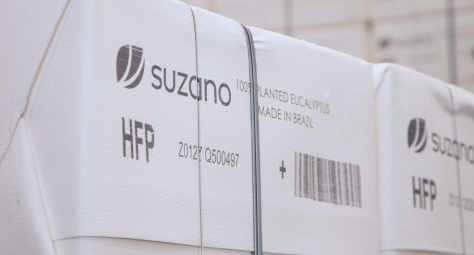sobre o que você deseja falar?


perguntas, sugestões ou problemas técnicos envolvendo a plataforma

informações sobre a empresa


Responsible socioenvironmental conduct and the generation of shared value are part of Suzano's business strategy. The company recognizes its forests' value, both in the conservation of their natural resources and in the supply of sustainable eucalyptus wood - its main raw material.
Therefore, the company is committed to a Zero Deforestation Policy and to adopting the best forest management practices, establishing its plantations exclusively in areas previously occupied by other uses. Likewise, Suzano also undertakes to purchase wood from plantations established in areas previously anthropized or that conversion, if any, has not occurred after the publication of its Wood Supply Policy.
To ensure that deforestation is absent in its value chain, besides providing transparency in its activities to stakeholders, the company has been publishing, since 2020, the Zero Deforestation Annual Report. This report is produced from an analysis of public data on deforestation in Brazil, cross-referenced with its operational base. For more information, access the 2020 and 2021 Zero Deforestation Annual Report.
Suzano operates in compliance with legislation, standards, and commitments undertaken and is committed to forestry initiatives widely recognized internationally [Forest Stewardship Council® (FSC®) and Programme of Endorsement for Forest Certification (PEFC)]. Furthermore, to monitor Brazilian regulations at the municipal, state, and federal levels and maintain contact with stakeholders for risk mapping and decision-making, the company relies on the support of software called Âmbito.
Currently, Suzano's operations are located in Bahia, Espírito Santo, Maranhão, Mato Grosso do Sul, Minas Gerais, Pará, São Paulo, and Tocantins States, comprising the Cerrado, Atlantic Forest, and Amazon biomes.
To evaluate the areas of forest producers and wood suppliers, Suzano has a Due Diligence System (Verification Program), which is a set of activities to monitor the sources of raw materials (wood) to meet the requirements of voluntary forest certification and applicable laws.
The Program covers 100% of wood suppliers. The contracts with suppliers include clauses for compliance with the legislation in force. In some cases, Suzano assists in regularizing the situation before signing the partnership. This control is evaluated by customers, investors, and internal and external auditors of the voluntary forestry certification standards.
Therefore, when acquiring wood for its production processes, the following principles are followed:
The evaluation, monitoring, and compliance with regulatory issues are also evaluated in Suzano's Integrated Risk Management and comply with the certification mechanisms focused on the topic, such as FSC® and PEFC, that attest to the company's conduct in the development of forest products, respecting the regional environmental, social and economic aspects. In these cases, the company is annually audited based on pre-established and public environmental, social, and economic performance standards.
In recognition of the potential impact of its operations on forests and other natural habitats, based on its Corporate Environmental Management Policy, Suzano establishes for each activity developed, based on the theory of the mitigation hierarchy, a risk evaluation and determination of measures for prevention, mitigation, adaptation, restoration and compensation of adverse impacts, as well as enhancement of beneficial impacts.
Suzano believes that a more just and sustainable world is built upon transforming the entire society's attitudes. That is why the company invests in the social development of its operating areas. The purpose of its social strategy is to promote with its partners the social development of the company's operating areas by strengthening relationships with the communities and investing in education and opportunities for work and income.
The relationship programs are built on a community engagement methodology, representing a deeper, inclusive and ongoing structured relationship that establishes Suzano as a partner in local development. This happens in practice from the organization of a cycle of structured dialogues, which have as objectives the sharing of information, the definition of short and long term goals, and the actions and responsibilities of the parties involved. The programs are born out of local vocations and needs. To enhance the local development of the neighboring communities, Suzano conducts various programs and initiatives for work and income, culture, sports, and education for rural, urban, and traditional communities and indigenous peoples. Some examples are the Beehives Program, the Sustainable Settlements Program, and the Agente do Bem Program.
The following table exemplifies the commitment to zero deforestation since in none of the regions where the company operates there is the use of the natural forests for wood production.
| 2019 | 2020 | 2021 | 2022 | |
|---|---|---|---|---|
| ha | ha | ha | ha | |
|
São Paulo |
0.00 |
0.00 |
0.00 |
0.00 |
|
Mato Grosso do Sul |
0.00 |
0.00 |
0.00 |
0.00 |
|
Espírito Santo - Bahia |
0.00 |
0.00 |
0.00 |
0.00 |
|
Maranhão |
0.00 |
0.00 |
0.00 |
0.00 |
Suzano does not use natural forest areas for wood production. These areas are designated for environmental conservation. Currently, the company maintains and protects over one million hectares of native vegetation, corresponding to roughly 40% of its total area.